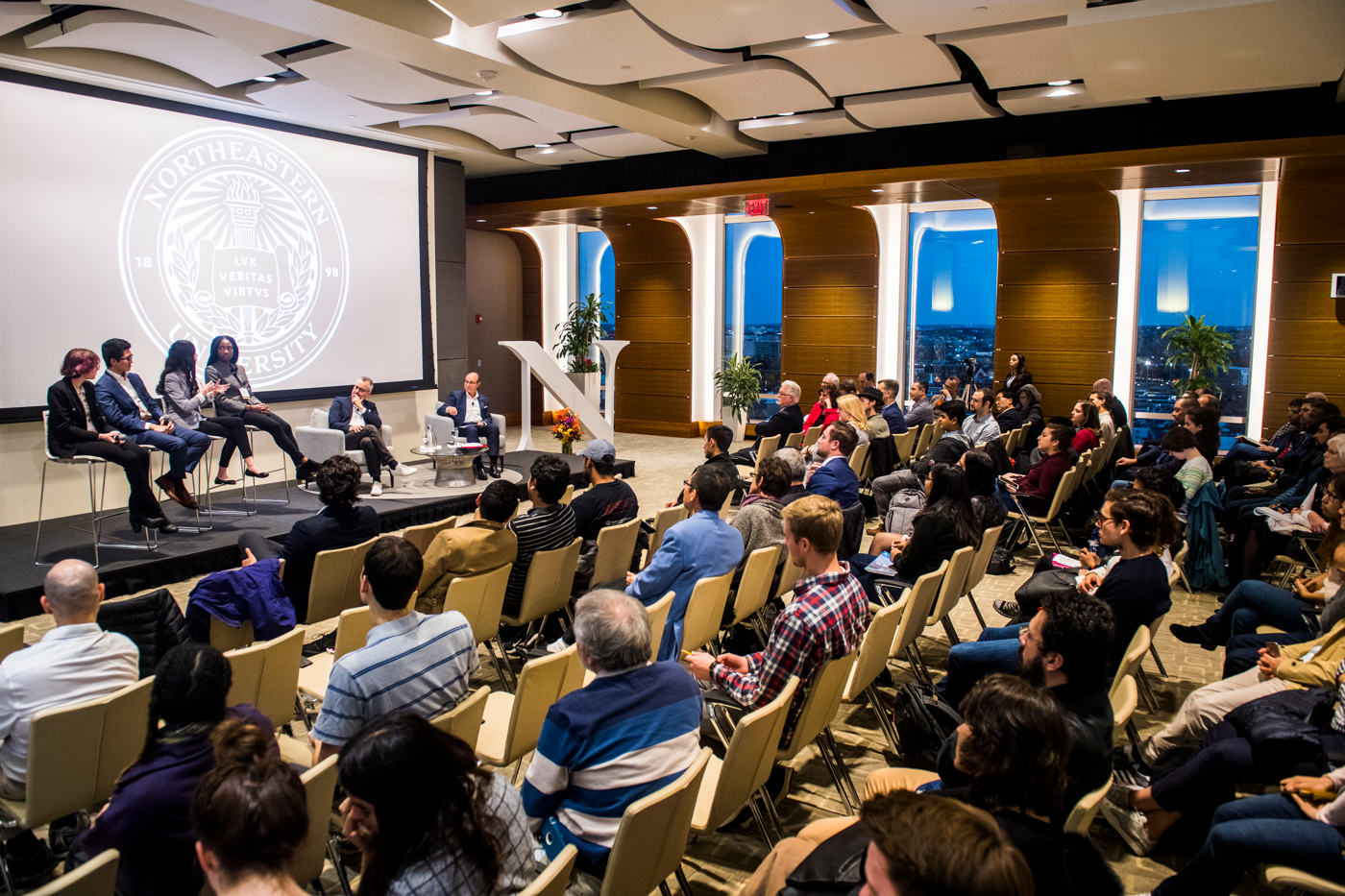Achievement is one thing. Success is something else entirely.
This is the message of Northeastern network scientistAlbert-László Barabási, whose research shows that the top performers aren’t always recognized as the best in their fields. Success, Barabási said Thursday at a public discussion with Northeastern President Joseph E. Aoun, is a collective measure that captures how people respond to our performance.
Their conversation centered on the findings of Barabási’s new book, The Formula: The Universal Laws of Success, in which the author explains why personal fulfillment doesn’t necessarily lead to money, fame, and other external rewards.
“While your performance is about you, your success is about us,” said Barabási, a Robert Gray Dodge Professor of Network Science and Distinguished University Professor at Northeastern. “It’s about the community’s acknowledgement of what you perform.”
Barabási’s Center for Complex Network Research at Northeastern approached the concept of success as a math problem that could use the tools of quantitative science to make sense of large databases that were not available to previous generations of scientists and physicists.
He had access to all the research papers ever written; the weekly sales patterns of all books sold in the United States; the career paths of a half-million artists over a span of 36 years; and millions of other diffuse clues, covering academia, sports, and business, from which he was able to create patterns and pathways to success.
Aoun asked Barabási to explain the five “laws of success,” as detailed in The Formula:
- Performance drives success—but when performance is immeasurable, networks determine success.
- Performance is bounded, but success is unbounded. The statistical differences in the performances separating Tiger Woods and other golfers is often small, writes Barabási, and yet as an endorser of products Woods has been exponentially more successful than his rivals.
- Previous success × fitness = future success. When fitness and social influence work in tandem, success has no boundaries.
- While team success requires diversity and balance, a single individual will receive credit for the group’s achievements.
- Success can come at any time as long as we are persistent. And it can arrive, regardless of one’s age or time served, so long as you keep striving for it.
“That is the one I am happiest with,” said Barabási of Law No. 5.
“I am too,” answered Aoun.
Read more on News@Northeastern.
Photo by Adam Glanzman/Northeastern University.

